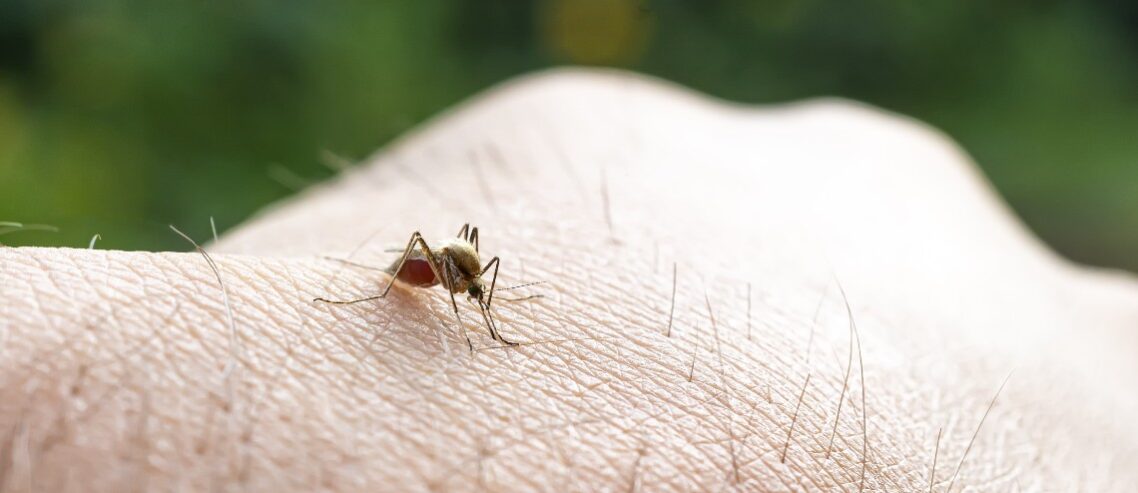Japanese Encephalitis in Thailand
Although the overall risk of contracting Japanese Encephalitis in Thailand is generally low for visitors, because infection can be fatal and the long-term consequences of infection can be highly debilitating, expats and visitors alike should take all feasible precautions to protect themselves.
Are you an expat in Thailand looking to safeguard yourself from the country’s common health issues? This Pacific Prime Thailand article will discuss Japanese Encephalitis in Thailand, including symptoms, long-term effects, prevention, and how health insurance can help.
Where is Japanese Encephalitis Most Common in Thailand
Provinces in northern and northeastern Thailand, such as Chiang Mai, Chiang Rai, Sukhothai, and Udon Thani, have higher instances of Japanese Encephalitis. These areas, with their lush rice fields and rural landscapes, are ideal breeding environments for mosquitoes.
Although the overall risk of contracting Japanese Encephalitis in Thailand is generally low for most visitors, those are the specific regions where the disease is more prevalent and extra precautions are to be taken.
It is worth noting that Japanese Encephalitis follows a seasonal pattern, with a higher occurrence during the rainy season, typically from May to October. During this time, mosquito populations multiply, increasing the likelihood of transmission.
Travelers who plan to visit rural areas, partake in outdoor activities during dawn and dusk, or have an extended stay in high-risk regions should therefore take additional measures to protect themselves from mosquito bites.
How Japanese Encephalitis Spreads
Identified first in Japan in the late 19th century, Japanese Encephalitis is caused by the Japanese Encephalitis virus (JEV), a member of the Flavivirus family. This viral infection is primarily spread through the bite of infected mosquitoes.
The transmission of Japanese Encephalitis involves mosquitoes and vertebrate hosts, with pigs and wading birds being popular vectors. Mosquitoes get the virus when they feed on infected animals. These infected mosquitoes then pass the virus on to humans and other animals through subsequent bites.
The species of mosquitoes primarily responsible for transmitting Japanese Encephalitis is Culex mosquitoes, especially Culex tritaeniorhynchus, often found in rural agricultural settings. These mosquitoes are most active in the evening and at night, raising infection risks at those times.
When an infected mosquito bites a person, the virus enters the bloodstream and begins replicating. Gradually, the virus travels to the brain of the person, causing inflammation and damage to the neurological system.
It is important to note that Japanese Encephalitis is not directly transmitted from person to person. Still, in rare instances, transmission can occur through organ transplantation or blood transfusion from an infected donor.
The Symptoms of Infection
Japanese Encephalitis is a viral infection characterized by its impact on the central nervous system. The severity of symptoms varies, ranging from mild flu-like symptoms to potentially severe complications that are in some cases life-threatening.
Individuals infected with Japanese Encephalitis often display no apparent symptoms or exhibit mild signs that can easily be mistaken for other flu-like illnesses. Where symptoms do occur, they typically emerge within 5 to 15 days following a bite from an infected mosquito.
The early signs of Japanese Encephalitis may include:
- Fever
- Headache
- Fatigue
- Muscle aches
- Nausea
These flu-like symptoms typically last for a few days before subsiding. Nonetheless, in certain instances, the infection can advance, leading to more severe complications.
Since the virus affects the central nervous system, individuals may experience neurological symptoms such as:
- Neck stiffness
- Seizures
- Confusion
- Disorientation
- Tremors
- Paralysis
Young children are especially susceptible to the development of these neurological complications due to their weak immune system.
In its severe form, Japanese Encephalitis can give rise to encephalitis, characterized by:
- High fever
- Severe headache
- Stupor
- Coma
- Death
The mortality rate for symptomatic cases is estimated to be approximately 20 to 30%, and individuals who survive may have to live with long-term neurological issues.
If symptoms suggesting Japanese Encephalitis appear, particularly when traveling or residing in regions with a high incidence of the disease, seek medical attention immediately. Timely diagnosis and suitable medical care are vital to managing the infection and minimizing potential complications.

The Long-term After-Effects of Infection
Following Japanese Encephalitis, individuals may experience long-lasting after-effects, including neurological impairment, behavioral and emotional changes, and seizures. While some individuals fully recover from the acute phase of the illness, others may continue to face persistent health issues.
Neurological impairment stands out as one of the significant long-term effects of Japanese Encephalitis. The virus can trigger inflammation and cause harm to the brain, giving rise to an array of neurological complications. This can result in cognitive difficulties, such as:
- Memory loss
- Difficulty concentrating
- Learning disabilities
Motor function can also be impaired, leading to muscle weakness, coordination challenges, and movement disorders. Furthermore, some people may encounter behavioral and emotional changes after Japanese Encephalitis. These changes can include:
- Mood swings
- Irritability
- Depression
- Anxiety
- Personality changes
These psychological effects can significantly affect the individual’s mental well-being and overall functioning. Psychological support and counseling may be necessary to address emotional and behavioral changes.
The long-term aftereffects of Japanese Encephalitis can also include seizures. Seizures may take place during the acute phase of the illness, or months or even years afterward. Managing these seizures can be challenging, often requiring ongoing medical treatment.
Although the long-term consequences of Japanese Encephalitis can be a concern, one should understand that not all individuals will experience these complications. The severity and scope of the aftereffects may differ among individuals.
Effective management of the long-term effects of Japanese Encephalitis takes constant rehabilitation and supportive care. Physical, occupational, and speech therapy, and various rehabilitation approaches are vital in helping individuals recover and optimize their functional abilities.
Diagnosis
Expats who live in or travel to areas where Japanese Encephalitis is prevalent and experience encephalitis are considered suspected cases. Initial diagnosis can be done through clinical examination, followed by a lumbar puncture.
To confirm a JEV (Japanese Encephalitis Virus) infection and rule out other causes of the encephalitis, a laboratory test is required. According to the WHO, testing for JEV-centric IgM (Immunoglobulin M) antibody in a single Cerebrospinal fluid (CSF) or serum with a IgM capture ELISA is recommended.
If you test negative, a convalescent sample may be tested. CSF sample testing is more efficient as there are less risks of false test results from previous infections or vaccinations.
How to Avoid Getting Infected
If you are planning extended stays or participating in outdoor activities in high-risk areas, it is important to get vaccinated, prevent mosquito bites, carefully select the time and location for outdoor activities, be aware of your physical environment, and stay well-informed.
Get Vaccinated
Vaccination is the most important measure for avoiding Japanese Encephalitis. You should seek guidance from a healthcare professional well in advance of your trip to decide whether vaccination is advised, considering factors such as your destination, duration of travel, and health background.
Prevent Mosquito Bites
You should use insect repellents containing DEET, picaridin, or lemon eucalyptus oil on exposed skin and clothing. Long-sleeved shirts, long pants, and socks can reduce exposed skin. Also, consider treating clothing with permethrin, an insect repellent that can be sprayed or soaked into fabrics.
Be Selective of Time and Location
The mosquitoes responsible for transmitting Japanese Encephalitis are particularly active during the hours of dusk and dawn. Therefore, refrain from engaging in outdoor activities during these periods to minimize the likelihood of mosquito bites where feasible.
Furthermore, selecting accommodations with well-fitted screens on windows and doors, opting for air-conditioned rooms, or sleeping under a mosquito net, can also be advantageous, because they are useful for keeping mosquitoes outside.
Keep Up Your Environmental Awareness
Pay attention to your physical environment, and avoid areas with high mosquito populations or an elevated risk of Japanese Encephalitis transmission. Regions such as rural agricultural areas, rice fields, and areas with stagnant water are fertile breeding grounds for mosquitoes.
Stay Informed
Keep yourself informed about travel advisories and health alerts related to Japanese Encephalitis in your destination. Government health agencies and international organizations offer valuable information and guidance to help travelers make informed choices.
What to Do if You Suspect You Have Been Infected
If you suspect yourself infected with Japanese Encephalitis, seek medical assistance without delay. Although there is no targeted antiviral treatment for the disease today, there are measures available to address the symptoms and complications associated with the infection.
Depending on the severity of your symptoms and some other relevant considerations, the following steps may be recommended by your doctor:
- Symptom relief with medications
- Hospitalization
- Neurological assistance with medications
- Hydration and supplying essential nutrients by intravenous fluids
- Rehabilitative Services
- Psychological Assistance

Hospitals in Thailand Offering Japanese Encephalitis Vaccines
Expats in Thailand looking to safeguard themselves from any potential Japanese Encephalitis infections will be happy to know there are hospitals offering vaccines to help prevent the infection.
Some of these notable hospitals include Samitivej Chonburi Hospital, Chiang Mai Wellness Clinic, and more. Below are some notable Thai hospitals offering Japanese Encephalitis vaccines:
- Samitivej Chonburi Hospital: This hospital offers a Japanese Encephalitis vaccine for both expats and local Thai citizens alike. Expats who are looking to live in Thailand for an extended period of time and/or participate in outdoor activities are highly recommended to get vaccinated.
- WellMed Bangkok Clinic: WellMed Bangkok Clinic offers the IMOJEV vaccine for 1,200 baht per dose. A booster dose may also be recommended every five years for continued immunization especially for expats who live in or constantly visit high risk areas in Thailand.
- Chiang Mai Wellness Clinic: Chiang Mai Wellness Clinic offers the Japanese Encephalitis vaccine for both local citizens and expats. What’s more, the clinic is also conveniently located just in the heart of Chiang Mai and its English-speaking staff is both supportive and knowledgeable.
Common side effects after getting vaccinated, which are generally mild and manageable, may include the following:
- Pain, redness, or swelling on the injected area.
- A mild fever may occur after the vaccination.
- Some individuals may experience a slight headache.
- You may experience some tiredness and fatigue.
Serious side effects may include allergic reactions, though this is relatively rare.
Conclusion
While we should do our best to prevent infections and other medical conditions, it is just as important to secure comprehensive health insurance. That way, if you need expensive medical services, you can still be sure that the bills will be settled by your insurer, and focus on a swift recovery.
Moreover, with the right expat or international health insurance, you can be repatriated to your own country for the most suitable medical care if that’s called for. Your insurer will pay for your repatriation and help with the arrangements, which are crucial in such circumstances.
With 20+ years of experience in insurance, Pacific Prime Thailand is well-positioned to tailor a solution for you that meets both your personal and budgetary needs, and you can benefit from our professionalism and personalized support without paying an extra dime.
So contact us for a quote or a FREE, no-obligation plan comparison today!
Further reading if you’re interested in other common diseases in Thailand:
Frequently Asked Questions
Is Japanese Encephalitis common in Thailand?
The overall risk of contracting Japanese Encephalitis in Thailand is not high, but the provinces in northern and northeastern Thailand have more cases of it. Moreover, the disease follows a seasonal pattern, with a higher occurrence during the rainy season, typically from May to October.
Is Japanese Encephalitis deadly?
In more severe cases, Japanese Encephalitis can be deadly. Even after recovery from the disease, individuals may still have to live with long-term aftereffects, including neurological impairment, behavioral and emotional changes, and intermittent seizures.
How do I protect myself against Japanese Encephalitis while in Thailand?
To protect yourself from Japanese Encephalitis, you should get vaccinated, prevent mosquito bites, carefully select the time and location for outdoor activities, be aware of your physical environment, and stay well-informed about the latest travel advisories and health alerts.
How long do the side effects of a Japanese Encephalitis vaccine last?
Most side effects following a Japanese Encephalitis vaccine, which may include mild fevers, headaches, fatigue, and pain at the injected area, usually occur and resolve within the first three days.
Who should get the Japanese Encephalitis vaccine?
Expats looking to live in Thailand for extended periods of time, visit high-risk areas like Chiang Mai or Udon Thani, or participate in outdoor activities will want to consider getting the Japanese Encephalitis vaccine as a preventative measure.
- Food Poisoning vs Stomach Bug: What’s The Difference? - March 28, 2025
- Food Poisoning First Aid Services in Thailand - March 28, 2025
- Medicine and Treatment for Food Poisoning in Thailand - March 28, 2025





Comments
Comments for this post are closed.
We'll notify you
when our team replies!